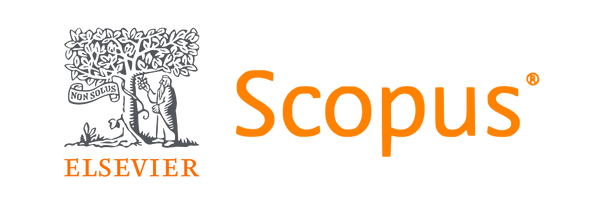The Productivity of West Sumatra Muhammadiyah Cash Waqf as a Model for the Development of Sharia Investment in Empowering UMKM
Abstract
Keywords
Full Text:
PDFReferences
Abdullah, H. B., & Suhendi, H. H. (2010). Peradaban pemikiran ekonomi Islam. Pustaka Setia.
Al Arif, M., & Rianto, N. (2010). Pemberdayaan masyarakat berbasis wakaf uang. Jurnal Asy-Syir?ah, 44(2), 813?828.
Anam, C., & EI, M. (2018). E-Money (uang elektronik) dalam perspektif Hukum Syari?ah. Qaw?n?n Journal of Economic Syaria Law, 2(1), 95?112.
Anwar, A. T. (2018). Zakat Produktif Untuk Pemberdayaan Ekonomi Umat. ZISWAF: Jurnal Zakat Dan Wakaf, 5(1), 41?62.
Aprianto, N. E. K. (2018). Kemiskinan Dalam Perspektif Ekonomi Politik Islam. Islamiconomic: Jurnal Ekonomi Islam, 8(2).
Ash Shiddieqy, M. H. (1994). Kuliah ibadah: ibadah ditinjau dari segi hukum dan hikmah. Thinker?s Library.
Faktor Penghambat Perkemenganan Wakaf Muhammadiyah, (2022) (testimony of Muharrir Asy?ari).
Asyari, M. (2017). Problematika Tata Kelola Wakaf Di Lingkungan Muhammadiyah Aceh. Jurnal Ilmiah Islam Futura, 16(1), 32?51.
Bahjatulloh, Q. M. (2015). Pengembangan Wakaf Tunai Berbasis Umrah di Pondok Pesantren Ta?mirul Islam Surakarta. INFERENSI: Jurnal Penelitian Sosial Keagamaan, 9(1), 137?158.
Djunaidi, A. (2007). Strategi Pengembangan Wakaf Tunai di Indonesia. Direktorat Pemberdayaan Zakat, Departemen Agama RI.
Elasrag, H. (2016). (Activating the Role of the Islamic WAQF in Human Resources Development in the Arab States). SSRN Electronic Journal. https://doi.org/10.2139/ssrn.2833042
Fakhrurozi, M., Warsiyah, W., Saputeri, N. P., & Pratama, A. (2021). Cash Waqf: An Innovation in Mobilizing the Potential of Waqf. Proceedings of the 2nd Borobudur International Symposium on Humanities and Social Sciences, BIS-HSS 2020, 18 November 2020, Magelang, Central Java, Indonesia.
Ghazaleh, P. (2011). Held in trust: Waqf in the Islamic world. Oxford University Press.
Gunawan, I. (2013). Metode Penelitian Kualitatif: teori dan praktik. Bumi Aksara.
Halim, A. (2015). Analisis Investasi. Selemba IV.
Hasbullah, H. (2012). Dinamika pengelolaan wakaf uang: studi sosio-legal perilaku pengelolaan wakaf uang pasca pemberlakuan UU No. 41 tahun 2004 tentang wakaf. Ijtihad : Jurnal Wacana Hukum Islam Dan Kemanusiaan, 12(2).
Jamil, I. (2020). Kesesuaian Syariah (syariah compliance) dalam pembiayaan Musyarakah dan Mudharabah Pada Perbankan Syariah Di Indonesia. UIN Syarif Hidayatullah Jakarta.
Maivalinda, M., Srihasnita, R., & Firsta, F. (2021). Mengukur Minat Wakaf Uang Generasi Milenial dalam Mendukung Pendanaan Pembangunan Berkelanjutan Sumatera Barat. Jurnal Ekonomi Dan Bisnis Dharma Andalas, 23(1), 84?93.
Mohsin, M. I. A. (2013). Financing through cash-waqf: a revitalization to finance different needs. International Journal of Islamic and Middle Eastern Finance and Management.
MUI. (2014). Himpunan fatwa keuangan syariah. Penerbit Erlangga.
Musa, A. (2018). Wakaf Tunai dalam Perspektif Majelis Ulama Indonesia (Analisis Terhadap Fatwa MUI No. 2. Tahun 2002 Tentang Wakaf Uang). Dusturiyah: Jurnal Hukum Islam, Perundang-Undangan Dan Pranata Sosial, 7(2).
Nasir, M. (1998). Metode penelitian. Ghalia Indonesia.
Nawawi, M. A. (2016). Pengembangan Wakaf Uang Tunai Sebagai Sistem Pemeberdayaan Umat dalam Pandangan Ulama Konvensional dan Kontemporer. Fikri: Jurnal Kajian Agama, Sosial Dan Budaya, 1(1), 183?210.
Rozalinda, R. (2014). Peran Wakaf dalam Pemberdayaan Ekonomi Perempuan. Kafaah: Journal of Gender Studies, 2(1), 39?62.
Rusydiana, A. S. (2018). Kriteria pemilihan lembaga wakaf di Indonesia: Pendekatan multicriteria decision making. Equilibrium: Jurnal Ekonomi Syariah, 6(2), 185?205.
Sakka, A. R., & Qulub, L. (2019). Efektivitas Penerapan Zakat Online terhadap Peningkatan Pembayaran Zakat pada Lembaga Dompet Dhuafa Sulsel. Al-Azhar Journal of Islamic Economics, 1(2), 66?83.
Seno, S., & Hasanadi, H. (2016). Perkembangan Organisasi Muhammadiyah di Minangkabau Provinsi Sumatera Barat 1925-2010. Balai Pelestarian Nilai Budaya Sumatera Barat.
Sukmana, R. (2020). Critical assessment of Islamic endowment funds (Waqf) literature: lesson for government and future directions. Heliyon, 6(10), e05074.
Sulistyani, D., Asikin, N., Soegianto, S., & Sadono, B. (2020). Pelaksanaan Dan Pengembangan Wakaf Uang Di Indonesia. Jurnal USM Law Review, 3(2), 328?343.
Syahri, F. I. (2021). Analisis Akuntansi Zakat pada Lazismu Kota Medan.
Thaheransyah, T. (2020). Manajemen Organisasi Badan Wakaf Uang Muhammadiyah (BWUM) Sumatera Barat Tinjauan Pengorganisasian. Al-Hikmah: Jurnal Dakwah Dan Ilmu Komunikasi, 177?191.
DOI: http://dx.doi.org/10.30984/jis.v20i2.2053
Article Metrics
Abstract view : 752 timesPDF - 554 times
Refbacks
- There are currently no refbacks.
Copyright (c) 2022 Jurnal Ilmiah Al-Syir'ah

This work is licensed under a Creative Commons Attribution-NonCommercial-ShareAlike 4.0 International License.
Rumah Jurnal IAIN Manado
Jl. Dr. S.H. Sarundajang, Kawasan Ringroad I, Malendeng Manado Kode Pos 95128, Sulawesi Utara, Indonesia.

All publication by Jurnal Ilmiah Al-Syir'ah are licensed under a Creative Commons Attribution 4.0 International licence.
Jurnal Ilmiah Al-Syir’ah, ISSN 1693-4202 (Print), ISSN 2528-0368 (Online)






